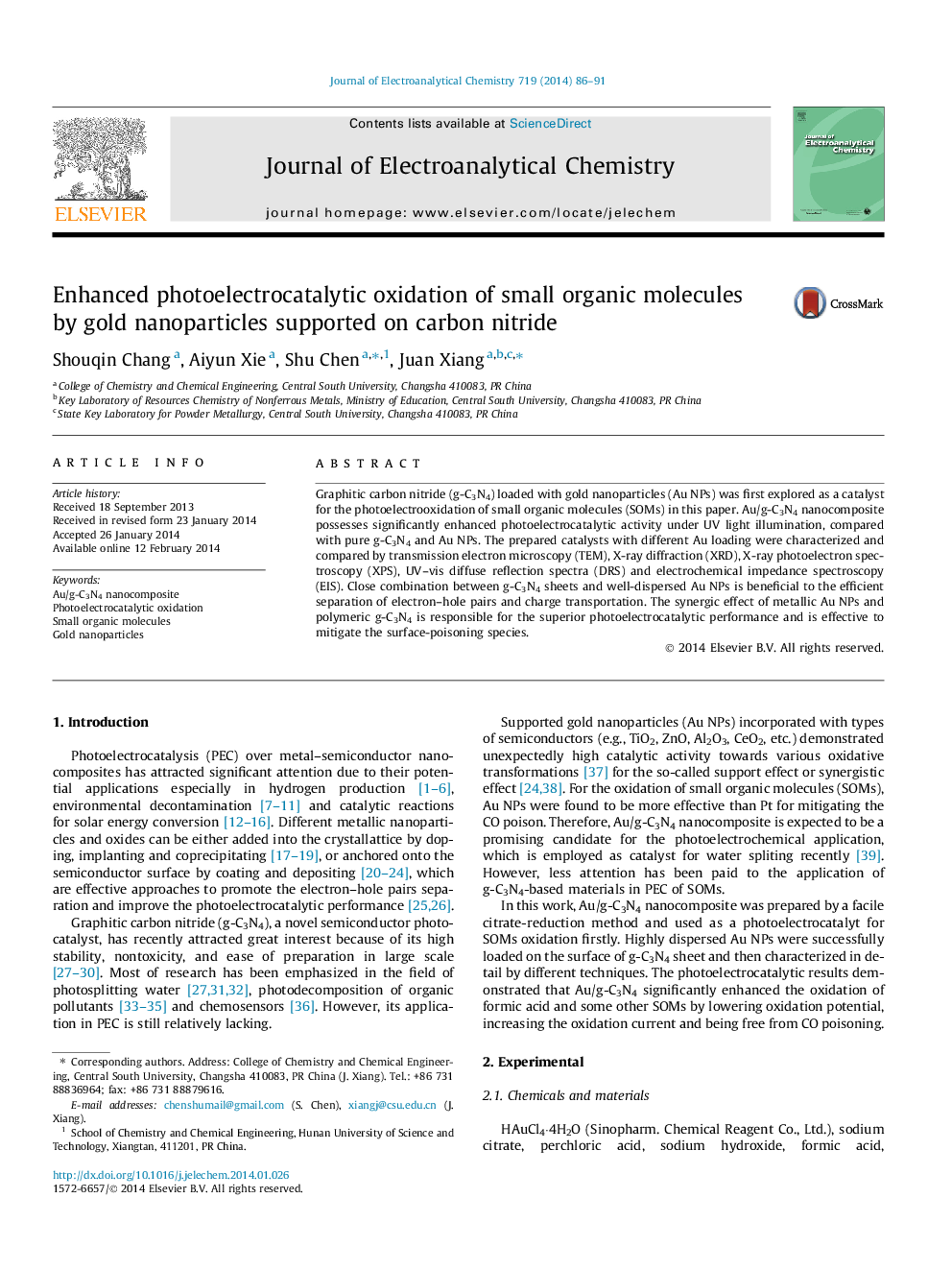| Article ID | Journal | Published Year | Pages | File Type |
|---|---|---|---|---|
| 218910 | Journal of Electroanalytical Chemistry | 2014 | 6 Pages |
•Gold nanoparticles were supported on carbon nitride by citrate-reduction method.•Au/g-C3N4 was first employed as photoelectrocatalyst for small organic molecules.•Greatly enhanced photocatalytic activity of Au/g-C3N4 under UV light illumination.•Photoelectrocatalytic performance was hightly dependent on the Au loading amount.
Graphitic carbon nitride (g-C3N4) loaded with gold nanoparticles (Au NPs) was first explored as a catalyst for the photoelectrooxidation of small organic molecules (SOMs) in this paper. Au/g-C3N4 nanocomposite possesses significantly enhanced photoelectrocatalytic activity under UV light illumination, compared with pure g-C3N4 and Au NPs. The prepared catalysts with different Au loading were characterized and compared by transmission electron microscopy (TEM), X-ray diffraction (XRD), X-ray photoelectron spectroscopy (XPS), UV–vis diffuse reflection spectra (DRS) and electrochemical impedance spectroscopy (EIS). Close combination between g-C3N4 sheets and well-dispersed Au NPs is beneficial to the efficient separation of electron–hole pairs and charge transportation. The synergic effect of metallic Au NPs and polymeric g-C3N4 is responsible for the superior photoelectrocatalytic performance and is effective to mitigate the surface-poisoning species.
